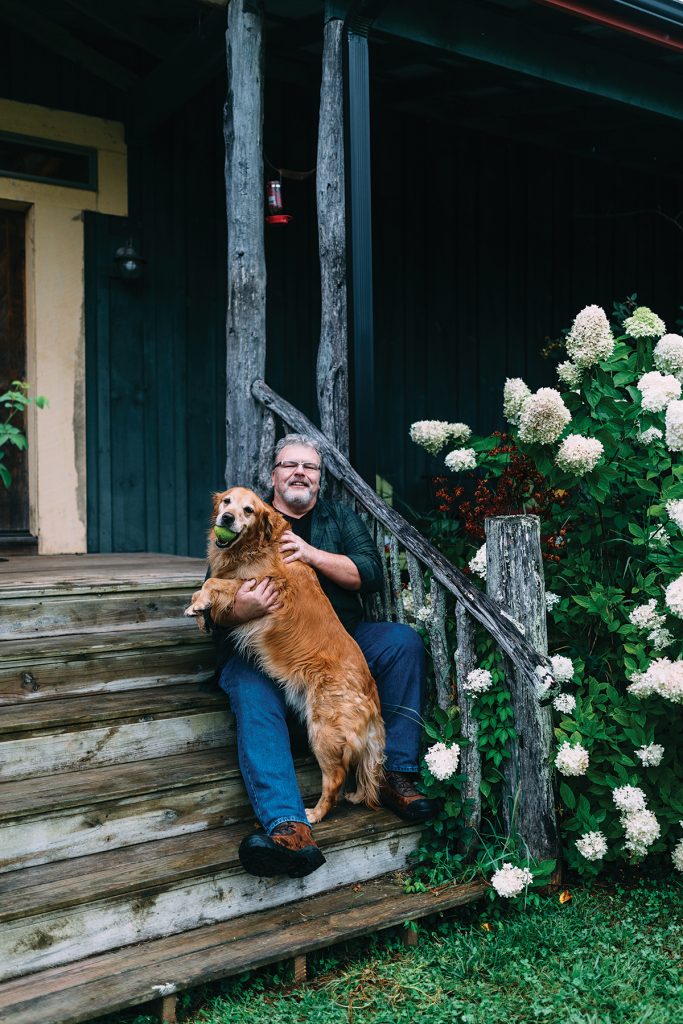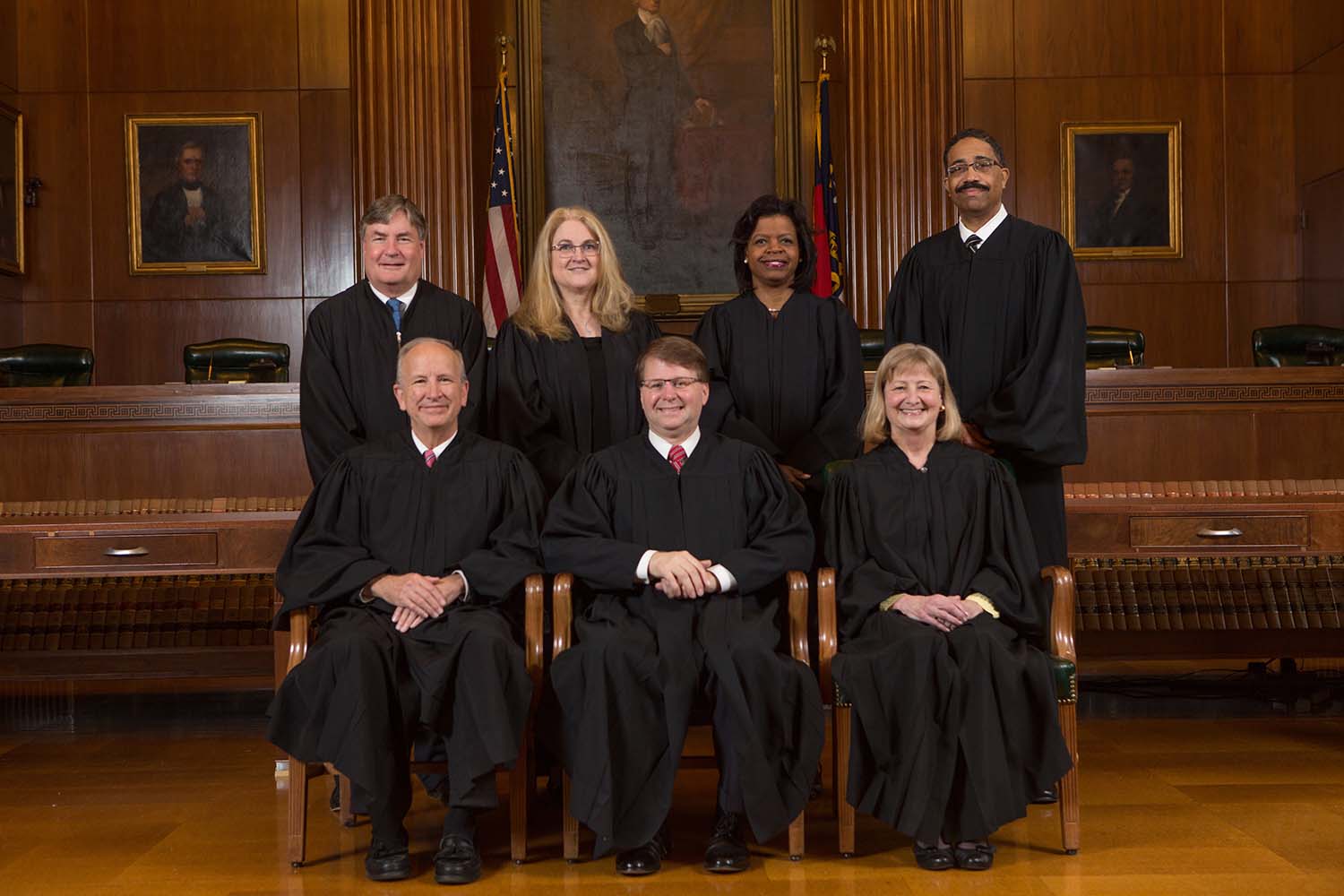Evan Williams harvests a rich story from deep roots in Henderson County

Portrait by Rachel Pressley
As a child, Evan Williams would steal away to a large apple-storage shed on his family’s orchard in Dana, stack up a bunch of wooden crates and seat himself in the top one with a good book. Reading was his passion and guilty pleasure, one that resulted in teasing from others. But he didn’t care. “I don’t do anything halfway,” he says.
Part of the seventh generation in a Henderson County apple-growing family, Williams has “something deeper than roots” in the area, going back to an ancestor with a land grant before the Revolutionary War. After high school, he went away to study engineering and worked in Charlotte and Atlanta, but “in the back of my head, I always really wanted to come back and grow apples,” he says.

Photo by Rachel Pressley
It took about 30 years for that to happen, after enough land had been cleared of older trees and he could start his own heirloom orchard, Barenaked Apples. In colonial times, Williams says, more than 5,000 varieties of apples were propagated in the U.S., a number that shrank dramatically over time as farmers homed in on the most productive varieties that could withstand shipping and long-term storage.

The process of propagating heirloom apples—called bench grafting—is satisfyingly creative, Williams says. After harvest time, when established trees are in dormancy, a scion (new-growth wood from the previous growing season) is cut and stored until spring. Then, a seedling apple tree, typically purchased from a nursery that supplies rootstock, is cut to around six inches above the uppermost roots, paired with a scion, and the two are wrapped together with grafting tape and potted. Within two years, the new tree will begin to make fruit.
The apple varietals bear poetic names: Hanging Dog Limbertwig, Karmijn de Sonneville, and Bonne-Hotture. They’re also all-natural — “I’d argue [they are] way beyond even organic standards,” says Williams, who hopes to start selling his fruit in 2020 from an on-site produce stand. The small business will also feature potted heirloom trees, his books, and art by local painter Fonda Haight.

Along with a deep ancestral calling to dig in the dirt, Williams had another untapped longing: He wanted to be a writer. He wrote poems, tinkered with short stories, and published a historical narrative, One Apple at a Time, inspired by his grandfather. For years, he thought about going back to school to get an MFA. At age 52, he enrolled in the low-residency program at Queen’s College in Charlotte. This summer, his first novel Ripples came out with SFK Press.
Set in the fictional town of Abundance, Ripples follows the story of Ben Bramley (the last name comes from an heirloom apple variety), who returns home after getting a degree from Duke and working in the big city. Bramley suffers from the push and pull of his upbringing—wanting to get away, but feeling irrevocably tied to home, connected by “the phantom umbilical cord that tethers me to this patch of the planet.” A penetrating look at the forces at play in a small Southern town, Ripples is painfully insightful about the ways in which a deeply religious background and its attendant rigid social structure becomes internalized and unshakable, regardless of the years and miles put in place to block it out.

The big-city-kid-returns-to-small-town-Southern-life theme in Ripples, and the book’s unflinching reflections on the town’s denizens, have drawn comparisons to Thomas Wolfe’s Look Homeward, Angel. If Bramley’s back story sounds a little like Williams’ and Abundance sounds a little like Dana, it’s not a coincidence — but it’s also not calculated. Ripples is “not full-on Thomas Wolfe biographical fiction,” says Williams. “I didn’t write about Dana. I wrote about a place of a similar size, but that’s it.”

his two biggest dreams: apple growing and novel writing.
Photos by Rachel Pressley
Like Wolfe, Williams has found his seemingly ordinary small-town upbringing fertile ground for inspiration. But unlike his character Bramley (and Wolfe’s Eugene Gant), his homecoming hasn’t been unwelcoming. He says he’s discouraged his mother from reading Ripples. “The Southern Baptist church takes some pretty hard hits,” he says. But, on the whole, his home community has been supportive of his second career. And being back home continues to inspire him. He’s now working on a novel set in Groverton, the fictitious county seat that makes an appearances in Ripples, with a few characters from the book making reappearances.

Williams renovated the fruit-storage building where he spent so many hours reading as a child; he now lives there. “I can’t step off my porch without being deluged with memories. My grandparents, they’re with me all the time,” he says.
Henderson County Heritage Museum Book Club at the Historic Henderson County Courthouse (1 Historic Courthouse Square, 828-694-1619) hosts an author appearance by Evan Williams — reading, Q&A, and book signing — on Wednesday, Sept. 11, 2:30pm, in the community room. For more information, see evanwilliamsauthor.com.


